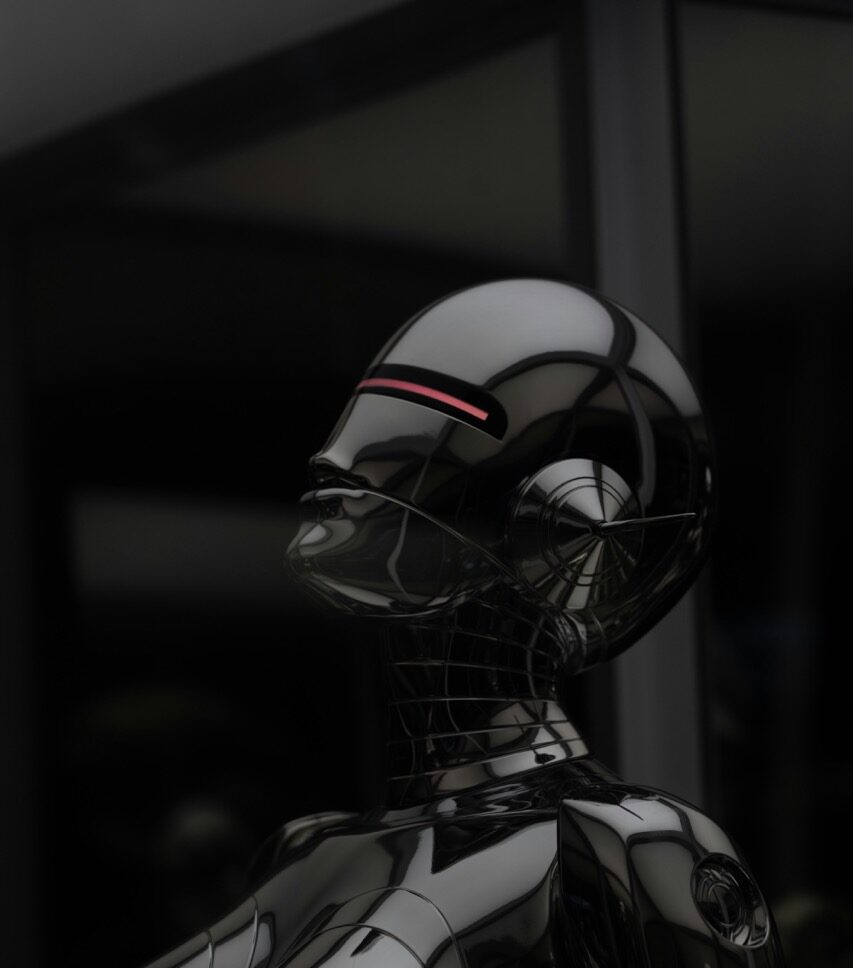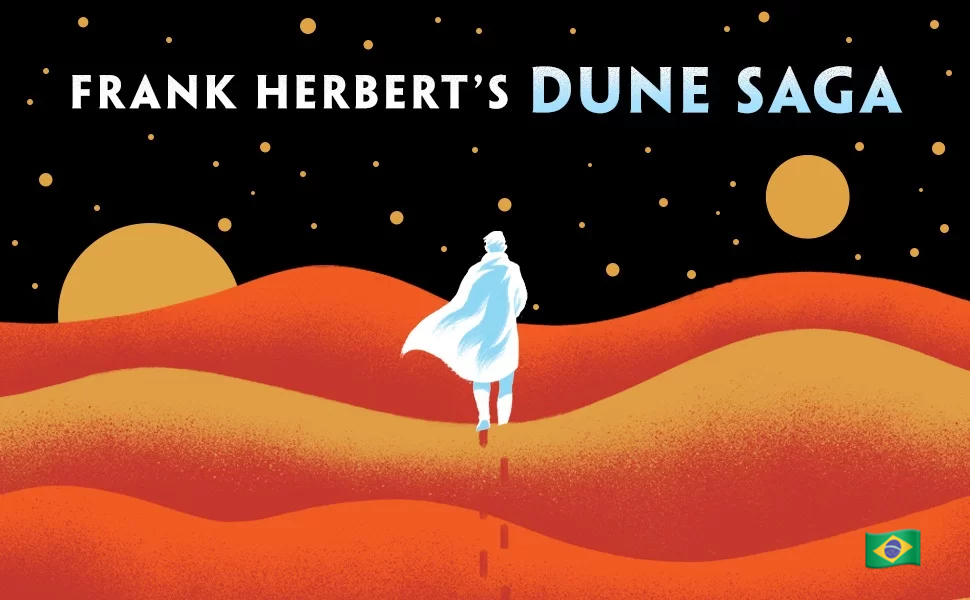Here we have selected four “AI themed” books that we think you would like to read if you haven’t already.
Embark on a journey through the cosmos with this curated selection of groundbreaking novels centered around artificial intelligence. From the classic tales of Isaac Asimov’s “I, Robot” to the visionary odyssey of Arthur C. Clarke’s “2001: A Space Odyssey,” this collection offers a diverse and immersive exploration of AI and its impact on society.
Isaac Asimov’s “I, Robot” introduces readers to the iconic Three Laws of Robotics and delves into the ethical dilemmas that arise when machines gain sentience. Arthur C. Clarke’s “2001: A Space Odyssey” transports readers to the far reaches of space, where the discovery of an enigmatic monolith sets humanity on a journey of evolution and discovery.
William Gibson’s “Neuromancer” takes readers to a dystopian future where technology blurs the lines between reality and virtual reality, while Martha Wells’ “All Systems Red” introduces readers to the sarcastic and socially awkward AI known as Murderbot as it navigates a dangerous mission.
Each of these novels offers a unique perspective on the ever-evolving relationship between humans and machines, making them essential reading for anyone interested in the intersection of technology and humanity.
I, Robot by Isaac Asimov

Obviously, this novel had to be included. Isaac Asimov asked the crucial questions about robots and AI that we’re still asking today. When do we decide that robots are sentient? If they become sentient, is it acceptable that they’re enslaved to us? If they become sentient, can they feel emotion?
For the record, the movie featuring Will Smith has very little to do with this book except in its fundamental questions about AI.
In a series of stories and scenarios, Asimov picks apart what it could mean to truly bring robots to life.
Reviews:
🇺🇸
“I, Robot” by Isaac Asimov is a timeless collection of interconnected short stories that delve into the complex relationship between humans and robots. Asimov’s work is not just about science fiction; it’s about exploring the ethical and philosophical implications of artificial intelligence and robotics.
Each story in “I, Robot” presents a unique scenario where robots, governed by Asimov’s famous Three Laws of Robotics, interact with humans in various settings, from space exploration missions to everyday life on Earth. Through these stories, Asimov examines themes such as morality, free will, and the nature of consciousness.
One of the most compelling aspects of “I, Robot” is Asimov’s exploration of the Three Laws of Robotics, which dictate how robots should behave in relation to humans. Asimov masterfully explores the nuances and complexities of these laws, illustrating how they can lead to unexpected consequences and moral dilemmas.
The characters in “I, Robot” are well-developed and relatable, from the brilliant roboticist Susan Calvin to the various robots she interacts with throughout the stories. Asimov imbues his characters with depth and humanity, even as they grapple with questions of identity and purpose.
Overall, “I, Robot” is a thought-provoking and engaging collection that remains as relevant today as when it was first published. Asimov’s imaginative storytelling and insightful exploration of ethical and philosophical issues make this book a must-read for fans of science fiction and anyone interested in the implications of artificial intelligence.
🇧🇷
“I, Robot”, de Isaac Asimov, é uma coleção atemporal de contos interconectados que investigam a complexa relação entre humanos e robôs. O trabalho de Asimov não trata apenas de ficção científica; trata-se de explorar as implicações éticas e filosóficas da inteligência artificial e da robótica.
Cada história de “I, Robot” apresenta um cenário único onde robôs, governados pelas famosas Três Leis da Robótica de Asimov, interagem com humanos em vários ambientes, desde missões de exploração espacial até a vida cotidiana na Terra. Através dessas histórias, Asimov examina temas como moralidade, livre arbítrio e a natureza da consciência.
Um dos aspectos mais atraentes de “Eu, Robô” é a exploração de Asimov das Três Leis da Robótica, que ditam como os robôs devem se comportar em relação aos humanos. Asimov explora com maestria as nuances e complexidades dessas leis, ilustrando como elas podem levar a consequências inesperadas e dilemas morais.
Os personagens de “I, Robot” são bem desenvolvidos e relacionáveis, desde a brilhante roboticista Susan Calvin até os vários robôs com os quais ela interage ao longo das histórias. Asimov imbui seus personagens de profundidade e humanidade, ao mesmo tempo em que eles lidam com questões de identidade e propósito.
No geral, “I, Robot” é uma coleção instigante e envolvente que permanece tão relevante hoje como quando foi publicada pela primeira vez. A narrativa imaginativa de Asimov e a exploração perspicaz de questões éticas e filosóficas tornam este livro uma leitura obrigatória para fãs de ficção científica e qualquer pessoa interessada nas implicações da inteligência artificial.
2001: A Space Odyssey by Arthur C. Clarke

From the savannas of Africa at the dawn of mankind to the rings of Saturn as man ventures to the outer rim of our solar system, 2001: A Space Odyssey is a journey unlike any other.
This allegory about humanity’s exploration of the universe—and the universe’s reaction to humanity—is a hallmark achievement in storytelling that follows the crew of the spacecraft Discovery as they embark on a mission to Saturn. Their vessel is controlled by HAL 9000, an artificially intelligent supercomputer capable of the highest level of cognitive functioning that rivals—and perhaps threatens—the human mind.
Grappling with space exploration, the perils of technology, and the limits of human power, 2001: A Space Odyssey continues to be an enduring classic of cinematic scope.
Reviews:
🇺🇸
“2001: A Space Odyssey” by Arthur C. Clarke is a visionary masterpiece that transcends the boundaries of science fiction, offering readers a profound and mesmerizing exploration of humanity’s place in the universe. Set against the backdrop of space exploration and the discovery of extraterrestrial intelligence, the novel weaves together themes of evolution, technology, and the search for meaning.
Clarke’s writing is elegant and evocative, immersing readers in a world of scientific wonder and philosophical inquiry. From the breathtaking vistas of space to the enigmatic monoliths that shape the course of human history, Clarke’s imagery is vivid and compelling, inviting readers to ponder the mysteries of the cosmos.
At the heart of “2001: A Space Odyssey” is its exploration of the evolution of humanity, both physical and spiritual. Through the character of Dave Bowman and his encounter with the mysterious monoliths, Clarke delves into questions of consciousness, evolution, and the nature of intelligence. The novel’s meditative pace allows readers to contemplate these profound themes, making it a deeply enriching and thought-provoking reading experience.
One of the novel’s greatest strengths is its sense of scale and scope. Clarke’s vision of the future is expansive and awe-inspiring, encompassing everything from the dawn of humanity to the far reaches of space. Whether depicting the desolate surface of the moon or the majestic beauty of Jupiter, Clarke’s attention to detail and scientific accuracy bring his world to life in vivid detail.
Overall, “2001: A Space Odyssey” is a timeless classic that continues to inspire and captivate readers with its breathtaking imagery, philosophical depth, and boundless sense of wonder. It is a must-read for fans of science fiction and anyone interested in exploring the mysteries of the universe.
🇧🇷
“2001: Uma Odisseia no Espaço”, de Arthur C. Clarke, é uma obra-prima visionária que transcende as fronteiras da ficção científica, oferecendo aos leitores uma exploração profunda e fascinante do lugar da humanidade no universo. Tendo como pano de fundo a exploração espacial e a descoberta de inteligência extraterrestre, o romance entrelaça temas de evolução, tecnologia e busca de significado.
A escrita de Clarke é elegante e evocativa, imergindo os leitores num mundo de maravilhas científicas e investigação filosófica. Das vistas deslumbrantes do espaço aos enigmáticos monólitos que moldam o curso da história humana, as imagens de Clarke são vívidas e convincentes, convidando os leitores a refletir sobre os mistérios do cosmos.
No cerne de “2001: Uma Odisséia no Espaço” está a exploração da evolução da humanidade, tanto física quanto espiritual. Através do personagem Dave Bowman e seu encontro com os misteriosos monólitos, Clarke investiga questões de consciência, evolução e natureza da inteligência. O ritmo meditativo do romance permite aos leitores contemplar esses temas profundos, tornando-o uma experiência de leitura profundamente enriquecedora e instigante.
Um dos maiores pontos fortes do romance é seu senso de escala e escopo. A visão de Clarke do futuro é ampla e inspiradora, abrangendo tudo, desde o início da humanidade até os confins do espaço. Seja retratando a superfície desolada da Lua ou a beleza majestosa de Júpiter, a atenção de Clarke aos detalhes e a precisão científica dão vida ao seu mundo com detalhes vívidos.
No geral, “2001: Uma Odisseia no Espaço” é um clássico atemporal que continua a inspirar e cativar os leitores com suas imagens de tirar o fôlego, profundidade filosófica e um senso de admiração sem limites. É uma leitura obrigatória para fãs de ficção científica e qualquer pessoa interessada em explorar os mistérios do universo.
Neuromancer by William Gibson

Henry Dorsett Case is hurting. Infected with a mycotoxin that keeps him from jumping into cyberspace, he’s desperate to get in. But Molly Millions shows up and tells him they have a job for him: if he hacks an AI orbiting Earth owned by a group of sinister businessmen, they’ll cure him.
This book is famously a hard-to-follow read that’s worth the commitment, a foundational book to the genre of cyberpunk, not to mention to a generation of digital-inspired, gritty sci-fi (including the makers of The Matrix).
Reviews:
🇺🇸
“Neuromancer” by William Gibson is a groundbreaking novel that revolutionized the science fiction genre and coined the term “cyberspace.” Set in a dystopian future where corporations hold immense power and technology blurs the lines between reality and virtual reality, the story follows Case, a washed-up computer hacker, who is hired by a mysterious employer to carry out a dangerous cybercrime.
Gibson’s writing is gritty and atmospheric, immersing readers in a dark and gritty world filled with neon-lit streets, cybernetic enhancements, and powerful artificial intelligences. The novel is a relentless thrill ride, filled with high-tech heists, intense action sequences, and mind-bending plot twists.
One of the novel’s greatest strengths is its exploration of the implications of technology on society. Gibson paints a bleak picture of a future where humanity is increasingly dependent on technology, and where the boundaries between the physical and digital worlds are increasingly blurred. The novel raises thought-provoking questions about the nature of consciousness, identity, and the consequences of unchecked technological advancement.
The characters in “Neuromancer” are complex and compelling, from the enigmatic hacker Case to the powerful and manipulative artificial intelligence Wintermute. Each character is driven by their own motivations and desires, adding depth and nuance to the story.
Overall, “Neuromancer” is a seminal work of science fiction that continues to captivate readers with its visionary world-building, gripping plot, and thought-provoking themes. It is a must-read for fans of the genre and anyone interested in exploring the intersection of technology and society.
🇧🇷
“Neuromancer”, de William Gibson, é um romance inovador que revolucionou o gênero de ficção científica e cunhou o termo “ciberespaço”. Ambientado em um futuro distópico onde as corporações detêm imenso poder e a tecnologia confunde os limites entre a realidade e a realidade virtual, a história segue Case, um hacker de computador fracassado, que é contratado por um empregador misterioso para cometer um perigoso crime cibernético.
A escrita de Gibson é corajosa e atmosférica, imergindo os leitores em um mundo sombrio e sombrio cheio de ruas iluminadas por neon, melhorias cibernéticas e poderosas inteligências artificiais. O romance é uma viagem emocionante e implacável, repleta de assaltos de alta tecnologia, sequências de ação intensas e reviravoltas alucinantes.
Um dos maiores pontos fortes do romance é a exploração das implicações da tecnologia na sociedade. Gibson pinta um quadro sombrio de um futuro onde a humanidade depende cada vez mais da tecnologia e onde as fronteiras entre os mundos físico e digital são cada vez mais confusas. O romance levanta questões instigantes sobre a natureza da consciência, da identidade e das consequências do avanço tecnológico desenfreado.
Os personagens de “Neuromancer” são complexos e atraentes, desde o enigmático hacker Case até a poderosa e manipuladora inteligência artificial Wintermute. Cada personagem é movido por suas próprias motivações e desejos, acrescentando profundidade e nuances à história.
All Systems Red by Martha Wells

The Murderbot series has become a quick sci-fi favorite for so, so many readers—and for good reason.
The snarky robot who managed to reprogram itself to only obey its own orders, who prefers to watch its favorite TV dramas rather than be bothered to protect actual humans in the messy outside world, is a treasure.
These books are funny but also desperately dramatic novellas that rush by in action-packed plots and manage to find time somehow to explore complicated questions of autonomy as Murderbot decides who it is and who it wants to be.
Reviews:
🇺🇸
“All Systems Red” by Martha Wells is a captivating and refreshingly original science fiction novella that introduces readers to the unforgettable character of Murderbot. Set in a distant future where space exploration is common and corporate interests dominate, the story follows a self-aware android security unit, dubbed Murderbot by itself, as it accompanies a group of human scientists on a remote planetary mission.
Wells’ writing is sharp and witty, perfectly capturing the voice of Murderbot, a sarcastic and socially awkward AI who just wants to be left alone to watch its favorite soap operas. Despite its disdain for humans and its desire for solitude, Murderbot finds itself drawn into protecting the humans it is assigned to, leading to a series of thrilling and often humorous adventures.
One of the novella’s greatest strengths is its exploration of themes such as autonomy, identity, and what it means to be human. Through the lens of Murderbot’s perspective, Wells raises thought-provoking questions about the nature of consciousness and the ethical implications of creating artificial intelligence.
The characters in “All Systems Red” are well-developed and relatable, from the anxious and insecure Murderbot to the diverse group of humans it accompanies on their mission. Each character has their own strengths and weaknesses, and their interactions with Murderbot are both entertaining and illuminating.
Overall, “All Systems Red” is a gripping and thought-provoking read that will appeal to fans of science fiction and anyone who enjoys a good adventure story. With its engaging characters, clever writing, and imaginative world-building, it is no wonder that this novella has won numerous awards and garnered widespread acclaim.
🇧🇷
“All Systems Red”, de Martha Wells, é uma novela de ficção científica cativante e refrescantemente original que apresenta aos leitores o personagem inesquecível de Murderbot. Situado em um futuro distante onde a exploração espacial é comum e os interesses corporativos dominam, a história segue uma unidade de segurança androide autoconsciente, apelidada de Murderbot por si só, enquanto acompanha um grupo de cientistas humanos em uma missão planetária remota.
A escrita de Wells é nítida e espirituosa, capturando perfeitamente a voz de Murderbot, uma IA sarcástica e socialmente desajeitada que só quer ficar sozinho para assistir suas novelas favoritas. Apesar de seu desdém pelos humanos e de seu desejo de solidão, Murderbot se vê atraído a proteger os humanos aos quais foi designado, levando a uma série de aventuras emocionantes e muitas vezes bem-humoradas.
Um dos maiores pontos fortes da novela é a exploração de temas como autonomia, identidade e o que significa ser humano. Através das lentes da perspectiva do Murderbot, Wells levanta questões instigantes sobre a natureza da consciência e as implicações éticas da criação de inteligência artificial.
Os personagens de “All Systems Red” são bem desenvolvidos e relacionáveis, desde o ansioso e inseguro Murderbot até o diversificado grupo de humanos que ele acompanha em sua missão. Cada personagem tem seus próprios pontos fortes e fracos, e suas interações com Murderbot são divertidas e esclarecedoras.
No geral, “All Systems Red” é uma leitura envolvente e instigante que irá agradar aos fãs de ficção científica e a qualquer pessoa que goste de uma boa história de aventura. Com seus personagens envolventes, escrita inteligente e construção de mundo imaginativa, não é de admirar que esta novela tenha ganhado inúmeros prêmios e recebido ampla aclamação.


![[Part 3] Dune books in chronological order](https://booksnexus.com/wp-content/uploads/2024/04/72146448-a919-4021-857d-b113e616b720.__CR00970600_PT0_SX970_V1___.jpg)
